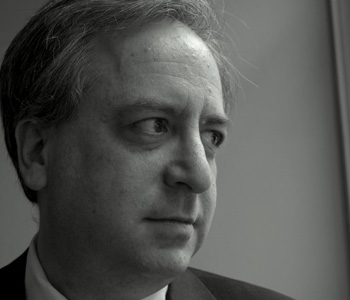Thomas N. Bisson
The Crisis of the Twelfth Century: Power, Lordship, and the Origins of European Government
Princeton University Press
720 pages, 5 1/2 x 8 1/2 inches
ISBN 978 0691137087
This is a book about power in a great period of the European Middle Ages. All societies have governments, right? And surely so in the famously progressive twelfth century? No, not so. The Crisis of the Twelfth Century argues, against an old and massive consensus of historians, that the story of power in the twelfth century is not that of government, but rather one of lordship—and that the exercise of power for social purpose began in the western world only as the resolution of a prolonged crisis of power.
In twelfth-century Europe, the public powers to protect and judge exercised by emperors and kings were subverted by ambitious pretenders to personal powers over people. Building castles in vast numbers, they created multiplied lordships over peasants who were forced into submission, and even servility. The masters of castles and their knights, craving noble status for themselves, had to dominate by force, exploitatively, in order to avoid submission themselves.
The book asks not only how they exercised power, but also how the masses of people experienced power. Their suffering, their voiced complaints against arbitrary lordship, led to reaction and to the revival of public justice. By granting charters, including the English Magna Carta, the greater lord-princes restored public taxation (and consent) in support of public enterprise.
But the crisis thus resolved was not only, perhaps not even primarily, one of suffering people. It was also a crisis of economic growth, for lord-princes were compelled by increased numbers of productive people to impose accountability on their appointed agents, to learn how to manage as well as to exploit. And it was, above all, a crisis of lordship. Could the multiplied masters of castles impose their exploitative domination? Their ultimate failure marked the origins of government in Europe. Could the great lord-rulers overcome the genetic defect of their status: the accident of dynastic failure leading to civil war? Their success in France and England coincided with their success in putting down the castellans, whereas in Germany dynastic conflict long delayed the resolution of crisis.
The compounded crises can be traced in varied “cultures of power”: those of troubadour singers, of moralists such as John of Salisbury and Peter the Chanter, and of the lawyers who rediscovered the concept of public interest in the twelfth century.

The exercise of power for social purpose began in the western world only as the resolution of a prolonged crisis of power.
The Crisis of the Twelfth Century was conceived in 1987 when, upon moving from Berkeley to Harvard, I was invited to offer a course in Harvard’s undergraduate core curriculum. I welcomed the opportunity, for after some 25 years of teaching what I had been taught about medieval Europe, I was ready to try out a new and different view of the twelfth century. With the help of students and teaching fellows, my course, which was offered from 1988 to 2003, became an ongoing laboratory experiment in historical reinterpretation. My new argument was there from the start, but students read the sources with me. They were invited to draw their own conclusions about the shortcomings as well as the merits of my revisionist case.
To argue for a “crisis” in the twelfth century is altogether new, for two reasons. First, it challenges the view made famous by Charles Homer Haskins in his 1928 book entitled The Renaissance of the Twelfth Century. Was this not the grand creative century in medieval history, the century in which all was growth, creativity, and human progress? Second, my book challenges the great corollary of Haskins’s work: that government was a real element of twelfth-century progress, exemplified in the celebrated reigns of William the Conqueror and his Norman and Angevin successors, and in much else.
In my view, now long tested with students, this understanding of history is either seriously mistaken or seriously misleading. Wherever one looks in twelfth-century Europe, what the sources talk about is power and lordship, not government. Contemporaries had no definition of government, nor even a vision of it. Even when, after about 1160, they were stumbling into ad hoc contrivances for the general welfare, they had no vocabulary for that—no way of thinking about government or the state. And because I refrain from imposing any such usage on my subjects, the modern relevance of my book will seem understated to some readers.
Conceived during Ronald Reagan’s second term, and published at the moment of Barack Obama’s election, The Crisis of the Twelfth Century has resonance for us—to say the least. The Europe of knights, castles, and violence was, in our perspective, an ungoverned jungle. Government was to be the solution as well as a resolution, not the problem. To begin to think about power as “ours,” not just as “mine,” was new and progressive in the twelfth century. Unregulated power no longer worked. It is from the resolution of compounded crises in the twelfth century that government originates as a continuous phenomenon in European history.
In Chapter VI, on pages 484-499, I open the discussion of “politicised power” with a new reading of the notorious assassination of Thomas Becket on 29 December 1170. Here, one appalling scene of crisis projects the whole problem of this book: lordship, its unpolitical failure, the habitual violence of knights.
What the sources say is that King Henry II and his proud archbishop Thomas were both great lord-princes. Both had vassals sworn to fidelity, both had great patrimonies, both were proud and intransigent. And when the lord-king wanted his former chancellor, now archbishop of Canterbury, to recognize the king’s jurisdictional rights over the English church, they fell into conflict that became heated and personal. Becket was forced into prolonged exile, then returned to England in hopes that a reconciliation was near, only to be murdered in his cathedral by a few knights who probably thought that the lord-king wished, after all, to destroy the disloyal prelate.
“If ever a medieval conflict cried out for a ‘political solution,’ it was this one.” But my argument here is that this was a “crisis of lordship.” It was not a political crisis, nor was it resolved as such—this was a struggle to the death between proud lord-princes who stood on principles, not policies. Neither cultivated allies so as to debate their claims; both insisted on their rights as non-negotiable. Thomas Becket’s principled “liberty of the church” could not be compromised, nor did the king seek to make his interest in a regulated church a worthy collective cause until it was too late. Both adversaries “were born and bred in cultures of lordship and nobility that prevailed widely and deeply in the twelfth century.”
But the “politicising” of power was already in progress by the 1170s. This section of the book continues with a discussion of “government” and “politics” as foreign to twelfth-century circumstances, and concludes with two case studies of crisis: that of Catalonia (1173 - 1205), which is here expounded for the first time, and that of Magna Carta in England (1212 - 1216), which is world-famous, but is placed here in a wholly new context. It is in these crises in two of Europe’s most progressive societies that political action first becomes visible. These are profoundly ironical mini-histories. In Catalonia the barons and castellans defended their bad lordship over peasants against king and church, their cause as historic as it was retrograde. In England a bad-lord king (John) aroused a baronial opposition that imposed Magna Carta on him, only to have a (great) pope (Innocent III) side with John and his lordship. In this case, however, the good cause proved historic.

To begin to think about power as 'ours,' not just as 'mine,' was new and progressive in the twelfth century.
Of my six original books, The Crisis of the Twelfth Century is the only one likely to prove controversial. But I shall welcome debate, it if comes, for what my 25 years with this subject have taught me is that the sources surviving from the twelfth century—everywhere in Europe, from Poland to Portugal, Sicily to Scotland—are overwhelmingly supportive of my thesis. Lordship was the normal form of power everywhere. In its new and most generative guises it was attended by violence, and it remained predominant even as it was overtaken by government toward 1200.
Some medievalist historians, especially older ones, may be troubled by the idea of a twelfth century without government. A smaller band of younger scholars have already taken issue with me about violence, and they will surely contend against my book. My arguments about exploitative lordship and constraint, however, have been revised and strengthened since I first set them out in 1994; and (to repeat) my support in the sources is strong.
I think it likely that Crisis will earn a recognized place in the ongoing study of power and institutional life in medieval Europe. It will be recognized for defending the old historians who first wrote about feudalism, without commending their justly discredited concept. Lordship, not “feudalism,” was the contemporary reality. My book is, I believe, the first to make clear how fundamental this really was in the twelfth century. I contend, further, that among writings in English, my book is the first fully to renounce the anachronistic concepts of government and politics with reference to the long (and formative) twelfth century. I hope that this position will prove influential.




We don't put paywalls. We don't distract you with ads. We don't sell your data.
Please help to keep this running!